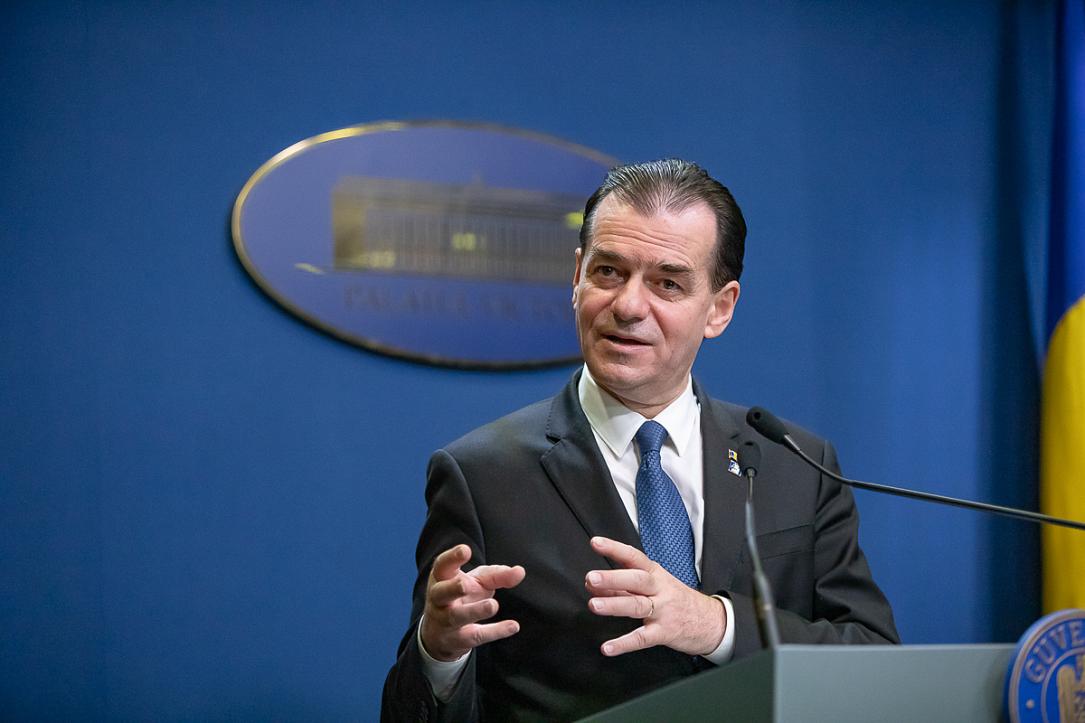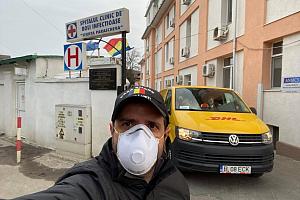Coronavirus in Romania: Govt. prefers no testing instead of quick testing

Romania’s prime minister Ludovic Orban said during a press conference on Tuesday evening (March 24) that the Government's goal in the coming week is to increase the Covid-19 testing capacity to over 2,000 people every day. At the same time, the prime minister dismissed the possibility of using rapid tests, saying that they cannot be used with confidence because they have a very high margin for error - 20%.
Meanwhile, over 100 doctors and nurses in Romania have been infected with the new Covid-19 virus after treating patients who hadn't been tested at all.
“I see many who are good at coronavirus, like football. But epidemiologists said that the diagnosis should be done on PCR, not on rapid tests, because they have a 20% margin for error, which is an enormous risk. It means that we could release 20% of the sick people with a certificate,” PM Orban said.
“Our goal in 5-7 days is to increase the testing capacity to over 2,000 per day, and further to 2,500 per day, and to continue to grow. We will give the county hospitals the right to make direct purchases,” the PM added, addressing the issue of limited processing capacity for the Real-Time PCR tests preferred by the Government for their higher accuracy.
Quick tests vs. Real-Time PCR tests
There are two types of tests for patients suspected of coronavirus. Local Recorder.ro has explained in an article the difference between the two.
The most reliable is the molecular diagnostic test (Real Time PCR). It is harvested through pharyngeal exudate and then processed in the laboratory, using a special device. The test determines whether or not the COVID-19 virus is present in the patient's body. The result takes several hours. However, this test requires specialized equipment and local hospitals in Romania have only a few such devices.
Then, there’s the rapid test, which is done by harvesting a very small amount of blood (it may be a few drops taken by pricking a finger). It is easy to perform and interpret, resembling a pregnancy test, and the result comes in about 15 minutes.
This rapid test does not determine the presence of the virus in the body, but the presence of antibodies, which makes it less accurate than the PCR test. Thus, if a patient has been infected just a few days before the test, the body hasn’t started producing antibodies, and the test will go negative, although the patient has coronavirus, resulting in the false negatives mentioned by prime minister Orban.
However, these tests can serve as a preliminary triage method, subsequently doubled by a PCR test. For example, local hospitals could use such tests on patients who come with other medical problems. If a test performed on a patient comes positive, then the patient can be isolated or sent to an infectious diseases section, thus reducing the risk of infecting the doctors and nurses.
Insufficient testing increases risks for health workers
While the Romanian Government doesn’t want to use quick tests, doctors from all over the country have been complaining about the lack of testing, even for patients in local hospitals who display the Covid-19 infection symptoms. Meanwhile, the country hospital in Suceava, a city of over 100,000 people in northeastern Romania, has been closed for disinfection after 92 doctors have tested positive for Covid-19.
The National Institute for Public Health is the institution that sets the criteria based on which people in Romania are tested for Covid-19. Since the first infection cases were reported in Romania, at the end of February, the tests have been carried out on people who had traveled recently to risk areas and people who had been in contact with infected persons, and only if they showed Covid-19 infection symptoms.
Thus, the Public Health Directions (DSP) have refused, in several cases, to test people who had the symptoms but didn’t fit the two risk factors (travel abroad or contact with other infected persons). Some of these people ended up infecting medical personnel in local hospitals, according to local media reports.
Meanwhile, members of the Parliament and Government have been tested after one of their colleagues was confirmed as infected with Covid-19, although they weren’t showing any symptoms. The prime minister himself was tested twice before he was cleared and he got out of isolation to go back to his office.
The total number of processed tests in Romania since the beginning of the crisis has reached 12,624, according to the latest data supplied by the Strategic Communication Group. However, as multiple tests are usually performed in some cases (for example, to say clear a Covid-19 suspect, two negative tests are usually required), the number of tested people is much lower than 12,000.
Thus, although official reports indicate 762 confirmed cases of infected people, the actual number could be much higher.
editor@romania-insider.com
(Photo source: Gov.ro)
















